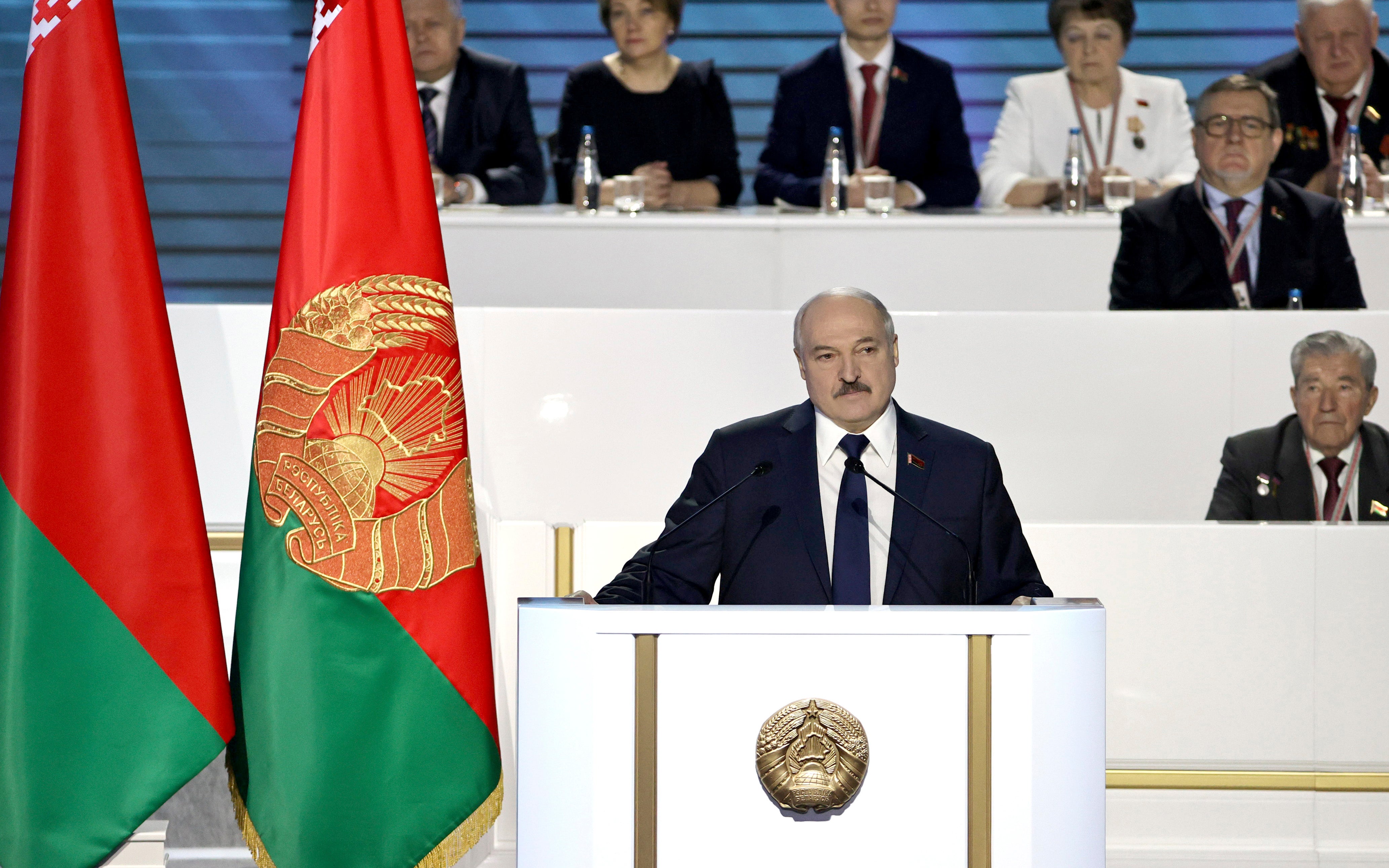Belarusian leader vows to defeat foreign-backed 'rebellion'
Belarus’ authoritarian leader has denounced six months of protests against his rule as a foreign-directed “rebellion” and vowed to resist the pressure

Your support helps us to tell the story
From reproductive rights to climate change to Big Tech, The Independent is on the ground when the story is developing. Whether it's investigating the financials of Elon Musk's pro-Trump PAC or producing our latest documentary, 'The A Word', which shines a light on the American women fighting for reproductive rights, we know how important it is to parse out the facts from the messaging.
At such a critical moment in US history, we need reporters on the ground. Your donation allows us to keep sending journalists to speak to both sides of the story.
The Independent is trusted by Americans across the entire political spectrum. And unlike many other quality news outlets, we choose not to lock Americans out of our reporting and analysis with paywalls. We believe quality journalism should be available to everyone, paid for by those who can afford it.
Your support makes all the difference.Belarus' authoritarian leader on Thursday denounced six months of protests against his rule as a foreign-directed “rebellion” and vowed to resist the pressure.
Speaking to 2,700 participants of the All-Belarus People's Assembly, President Alexander Lukashenko charged that “very powerful forces” abroad were behind the protests. Lukashenko didn’t elaborate, but over the past several months he has repeatedly accused the West of fomenting the protests.
“We must stand up to them no matter what, and this year will be decisive,” he said.
Lukashenko convened the gathering to discuss plans for the country's development, but the opposition has denounced it as an attempt to shore up his rule and soothe public anger with vague promises of reforms.
Mass protests have gripped the ex-Soviet nation of 9.5 million people since official results from the Aug. 9 presidential election gave Lukashenko a landslide victory. The main opposition candidate, Sviatlana Tsikhanouskaya, and her supporters have dismissed the result as rigged, and some poll workers also have described manipulations of the vote.
Authorities have cracked down hard on the largely peaceful demonstrations, the biggest of which attracted up to 200,000 people. Police have used stun grenades, tear gas and truncheons to disperse the rallies. According to human rights advocates, more than 30,000 people have been detained since the protests began, and thousands of them were brutally beaten.
The opposition has urged Belarusians to take to the streets to protest Thursday's gathering.
Lukashenko has ruled Belarus for more than 26 years, relentlessly stifling dissent and relying on cheap energy and other subsidies from his main ally, Russia. Speaking Thursday, he thanked Moscow for its support in the face of protests, but reaffirmed that the union agreement between the two countries shouldn't limit Belarus' independence.
The United States and the European Union have responded to the vote manipulations and the crackdown on protests by introducing sanctions against Belarusian officials.
Speaking Thursday, Lukashenko accused the West of harboring aggressive intentions, but at the same time urged it to restore political ties and economic cooperation.